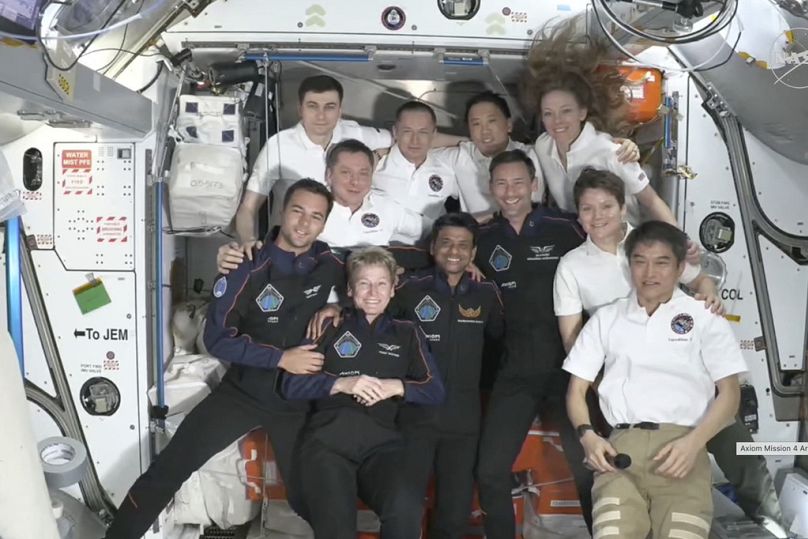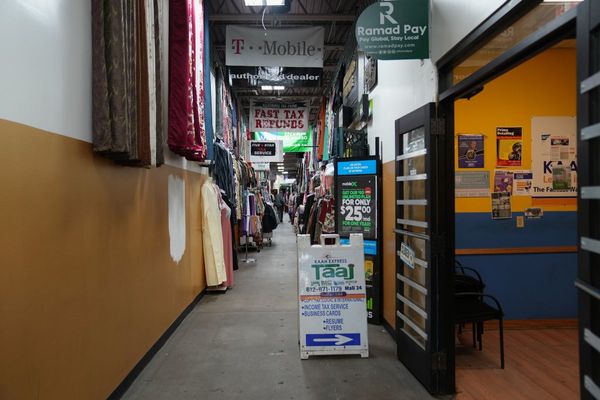Poland was the fourth country to send one of its citizens to space in the 1970s. The first astronaut to do so, Mirosław Hermaszewski, crossed the Kármán line - an imaginary boundary separating Earth from space- on 28 June 1978.
Now, after nearly 47 years, the second Pole to complete such a mission, Sławosz Uznański-Wiśniewski, set off for the International Space Station (ISS), along with former NASA astronaut Peggy Whitson, Hungarian astronaut Tibor Kapu, and Indian astronaut Shubhanshu Shukla.
Now, experts say that this mission may inspire a new generation of astronauts and breathe new life into the industry.

A long wait for Poland
For Poles, who waited nearly half a century to send a second national into space, this mission held particular weight. But why did it take so long?
"It was in some ways our decision or our negligence, and in some ways not," Dr Tomasz Rożek, who runs the website Science to Like, told Euronews.
"Looking at how the fate of our country has historically unfolded over the last half-century, it was - to put it very mildly - a lot of things happened when we were in the communist bloc. Sending a man into space without the approval of Moscow was simply not feasible," he said.
But even after the fall of the Berlin Wall and Poland's subsequent political and economic situation, space seemed far beyond the widest imagination of the country's scientists.
After the change of the political system, we were a poor country that had to learn certain things first," explained the scientist.
Poland cannot act alone
According to Rożek, at present, Poland still does not have many of the competences needed to send people into orbit.
"We don't have a rocket that could do it, but also geographically we are located in such a place that building a space port is not an option. We don't need to have all the competences, instead we need to have something to offer," he said.
However, joining the European Space Agency (ESA) helped the country take a major step forward. Poland contributed a staggering €69 million, or 0.014 per cent of its GDP, in order to invest in its space industry.
A total of €65 million has been earmarked for the Axiom-4 mission. In spite of the high cost, Poland's Finance Minister Andrzej Domański, argues that every euro spent brings a return of between €3 and €6 to the country.
The mere fact of a Pole flying into space means nothing yet, said Rożek.
But if a country plays it right, adjusts the education system, the science system and the space industry itself, then the mission can be profitable in both financial and non-financial terms.
Who will benefit from the Axiom 4 mission?
For experts, many benefits can be reaped from the mission, but it's important to look at them beyond simple profit measures.
"Viewing investment in space, or more broadly, even in science, only on the basis of such a simple Excel, how much flowed out, how much flowed back in, is a mistake," said Rożek.
"The history of science, looking at the last decades in the world, shows that investing in science and in technology (...), is one of the best investments with the highest rate of return that we can ever dream of," he added.
Jędrzej Kowalewski, CEO of Scanway, a company that provides optical instruments for various space projects, primarily Earth observation satellites, echoed similar thoughts.
"I see very good opportunities in Earth observation," said the entrepreneur, adding that naming the telecommunications industry is an example.
Power-science-business
"We are in such a geopolitical situation that it is necessary to focus a little bit on these most urgent needs, the so-called dual-use," Kowalewski emphasised.
In his view, it is important for power, science and business to work together, and here the right decisions are often lacking. What could this look like?
"There has to be such a river of technology, a river of needs flowing preferably first from the government, which says: as Poland we need, for example, technologies for imaging our planet or space technologies related to telecommunications," the CEO said.
And only then come entrepreneurs and scientists, who together try to solve this problem. That is how it should be. This is how it has worked at NASA and with the US government. This is how it was in the European Space Agency at its inception. In Poland, we have the problem that we don't have this river," the Scanway's CEO explained
"As Poland, we need to understand a little bit better what the government needs, what the Republic simply needs, so that we can develop and deliver these technologies," he added.
Polish experiments and the 'Slawosz effect'
During his mission to the International Space Station, Sławosz Uznański-Wiśniewski will conduct 13 experiments, which in and of themselves are contributing to the blossoming of the industry and providing crucial scientific knowledge.
"It's not that we are going to this space station only to perform 13 experiments and to provide data only for these companies. This is part of something bigger, related to promoting science, promoting the space sector, but also, of course, the educational aspects," - emphasises Kowalewski.
"The astronauts who fly into space are scientists," Kowalewski emphasises. "That's the path this mission needs to show. And these are things that will only pay off in about 20-30 years".

In his view, in 20 years, there will be many more people graduating in engineering or science in Poland. "I think we will see something similar to the Apollo effect that took place in the United States in the 1960s and 1970s, and maybe a little bit over the top, but it will be that kind of Slawosz effect," Kowalewski predicts.







